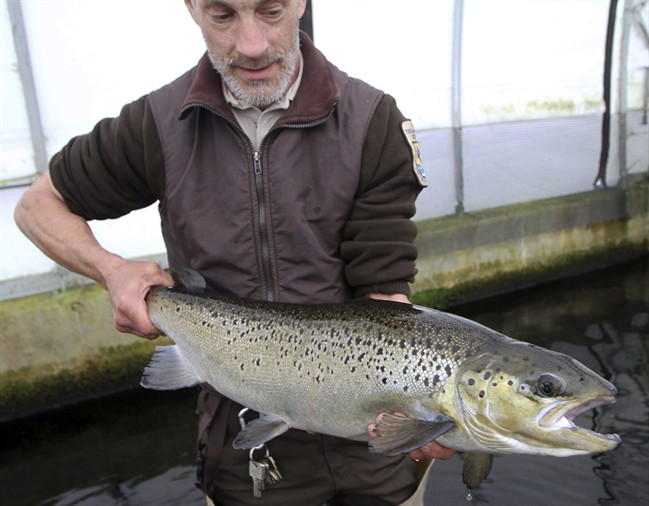A Newfoundland judge has ruled that the province’s former environment minister acted unreasonably when he allowed a salmon hatchery to proceed without further environmental assessment.

The proposed Indian Head hatchery in Stephenville would see more than 2 million salmon placed into existing sea cages owned by Northern Harvest Sea Farms.
Lawyers on behalf of a group of wildlife advocates argued last fall that the minister’s decision was not valid because he did not consider the impacts when the hatched fish are released into sea cages.
READ MORE: Company says severe winter weather responsible for fish farm die-off in N.L.
Supreme Court of Newfoundland and Labrador Justice Daniel Boone concluded that former minister Andrew Parsons’ decision to release the project from assessment without considering the sea cages did not reflect a “rational chain of analysis.”
He quashed the minister’s decision in his Feb. 27 judgment.

Get breaking National news
A lawyer for the province had argued that the company was legally entitled to make revisions to its proposal, making the case that because the sea cages were already licensed, additional assessment of the facilities was not justified.
Environmental law group Ecojustice, which provided counsel to the applicants, said the ruling in favour of comprehensive assessments shows the province needs to strengthen its regulations.
“(The) result closes a glaring loophole in the way aquaculture is regulated in the province and will help minimize threats to wild salmon,” Ecojustice lawyer Sarah McDonald said in a statement.

Aquaculture regulation in the province came under scrutiny last year after 2.6 million salmon died in sea cages owned by Northern Harvest Sea Farms off Newfoundland’s south coast.
John Baird, President of the Freshwater-Alexander Bays Ecosystem Corporation, said salmon conservation groups involved in the case are “very happy” with the ruling.
In a statement, he said the court’s decision takes into account public concerns with ocean salmon-farming.
“Open net farms can no longer be developed in this province without proper environmental review,” he said. “We will be watching closely to ensure that the environmental assessment for this project is sufficiently rigorous and mindful of real concerns about this industry’s impacts.”
This report by The Canadian Press was first published March 5, 2020.







Comments
Want to discuss? Please read our Commenting Policy first.